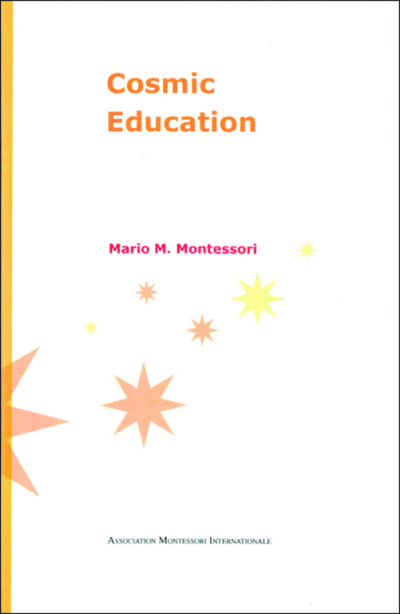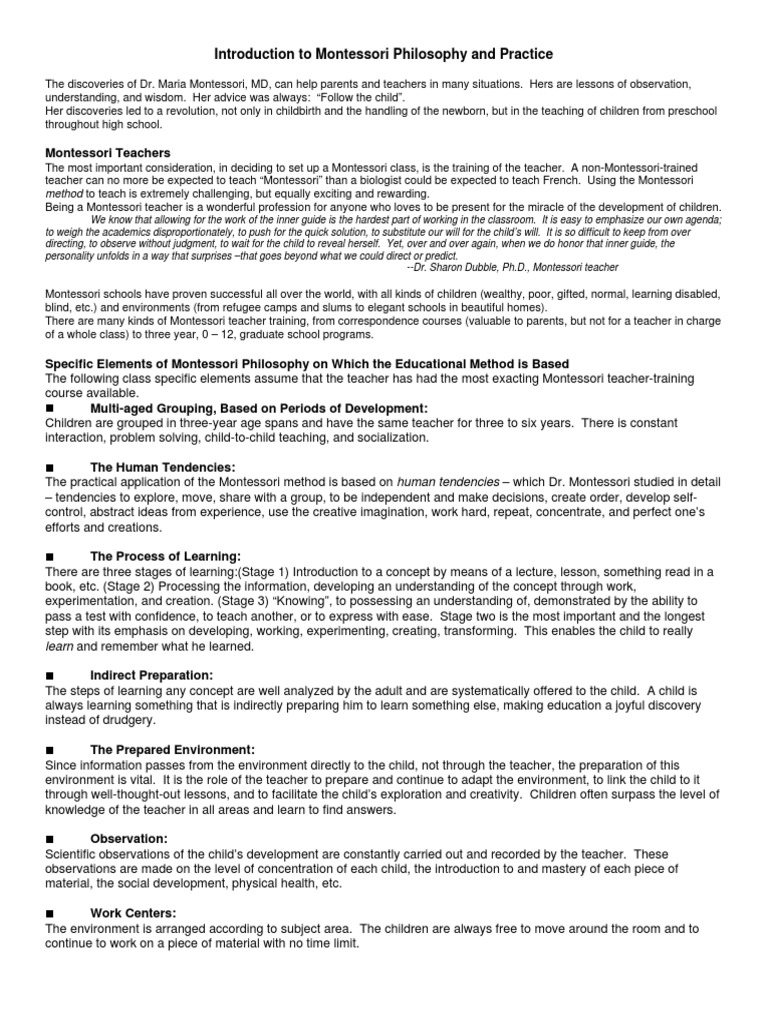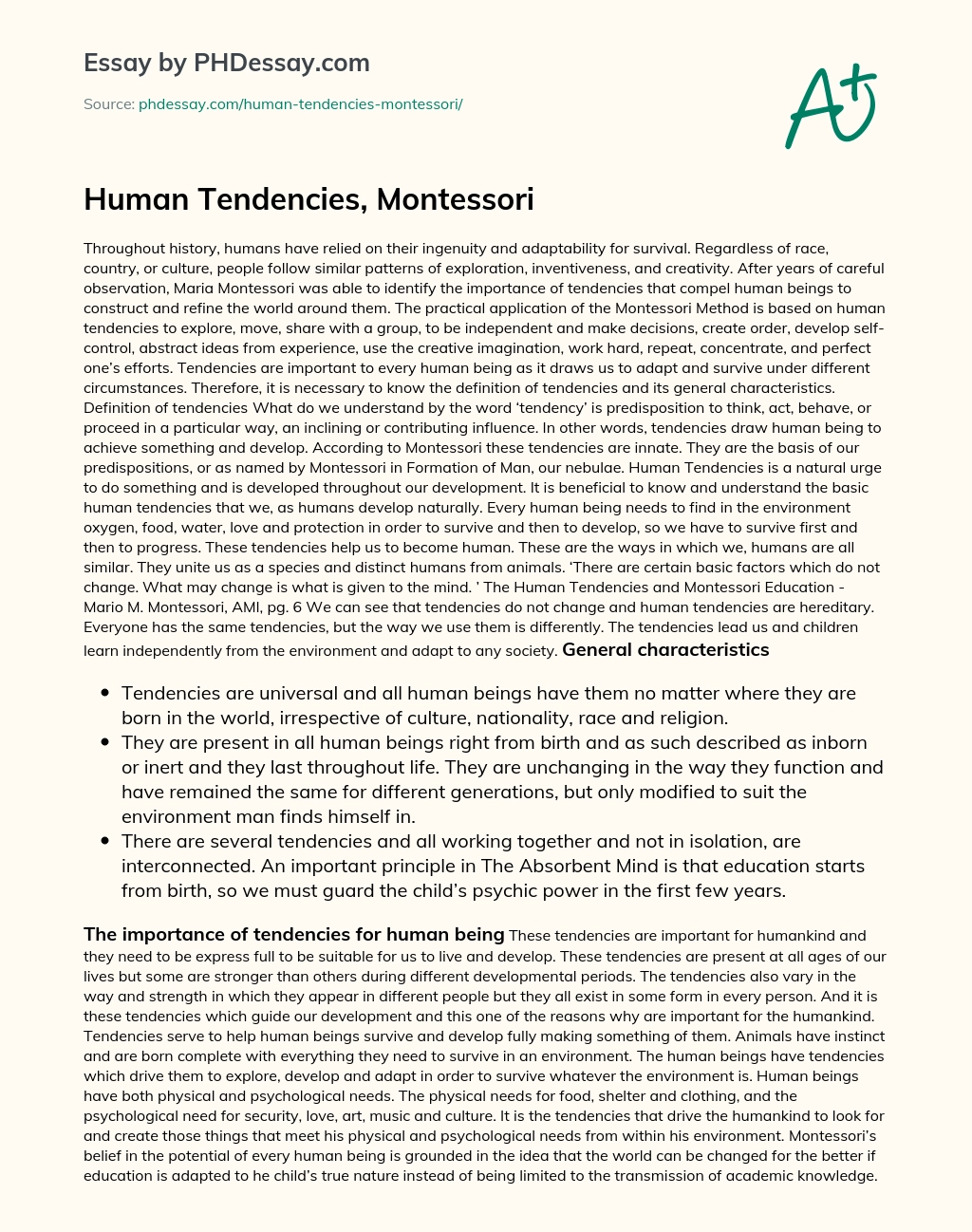Human tendencies are the innate drives and inclinations that shape our behavior and guide our actions. According to Maria Montessori, a renowned Italian physician and educator, there are six fundamental human tendencies that drive our development and learning: the tendency to absorb, the tendency to adapt, the tendency to learn through the senses, the tendency towards independence, the tendency towards order, and the tendency towards communication.
The tendency to absorb refers to our innate drive to take in information from the world around us. From birth, we are constantly learning and assimilating new knowledge and experiences. This tendency is evident in young children, who seem to have an endless capacity for learning and exploration.
The tendency to adapt refers to our ability to adjust to new environments and situations. This tendency allows us to adapt to changes in our environment, both physical and social, and to learn from new experiences.
The tendency to learn through the senses refers to our natural desire to explore and learn about the world through our senses. Children are especially sensitive to this tendency, and will often engage in activities that allow them to use their senses to explore and learn about the world around them.
The tendency towards independence refers to our natural desire to be self-sufficient and capable of making our own decisions. This tendency is essential for personal growth and development, and is often fostered in children through the Montessori method of education, which emphasizes hands-on learning and encourages children to take control of their own learning process.
The tendency towards order refers to our natural desire to create structure and organization in our lives. This tendency is evident in the way children will spontaneously classify and organize objects, and is often fostered through Montessori education, which emphasizes the importance of order and structure in the classroom and in the home.
Finally, the tendency towards communication refers to our natural desire to connect with others and share our thoughts and ideas. This tendency is essential for socialization and is fostered through Montessori education, which emphasizes the importance of communication and collaboration in the learning process.
Overall, Montessori education recognizes and nurtures these fundamental human tendencies in order to create a supportive and stimulating learning environment that fosters the full development of the child. By recognizing and nurturing these innate drives and inclinations, Montessori education helps children to reach their full potential and become confident, independent, and capable individuals.







